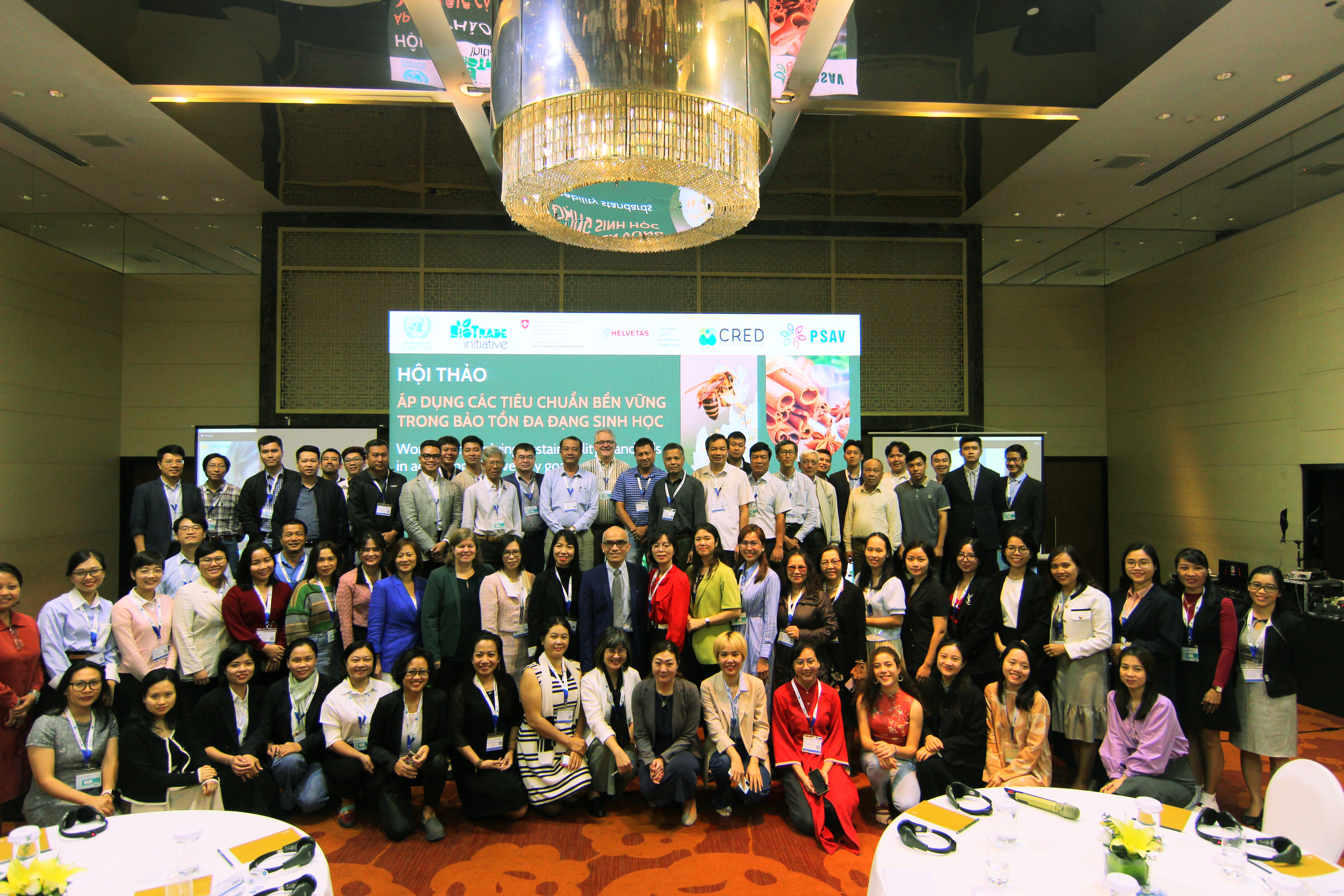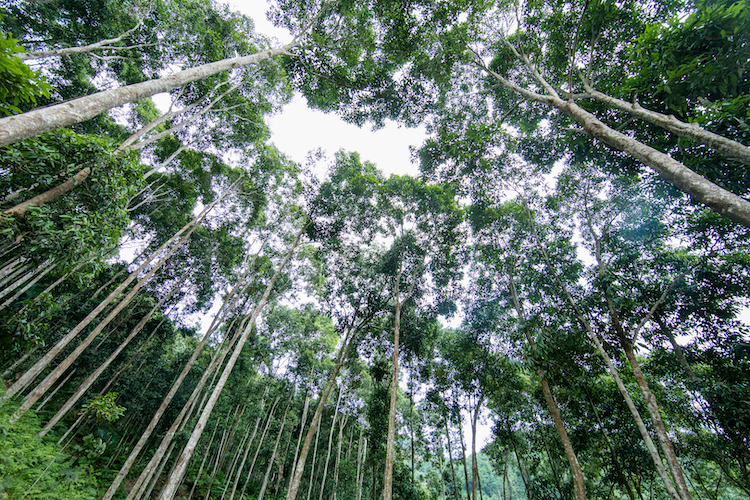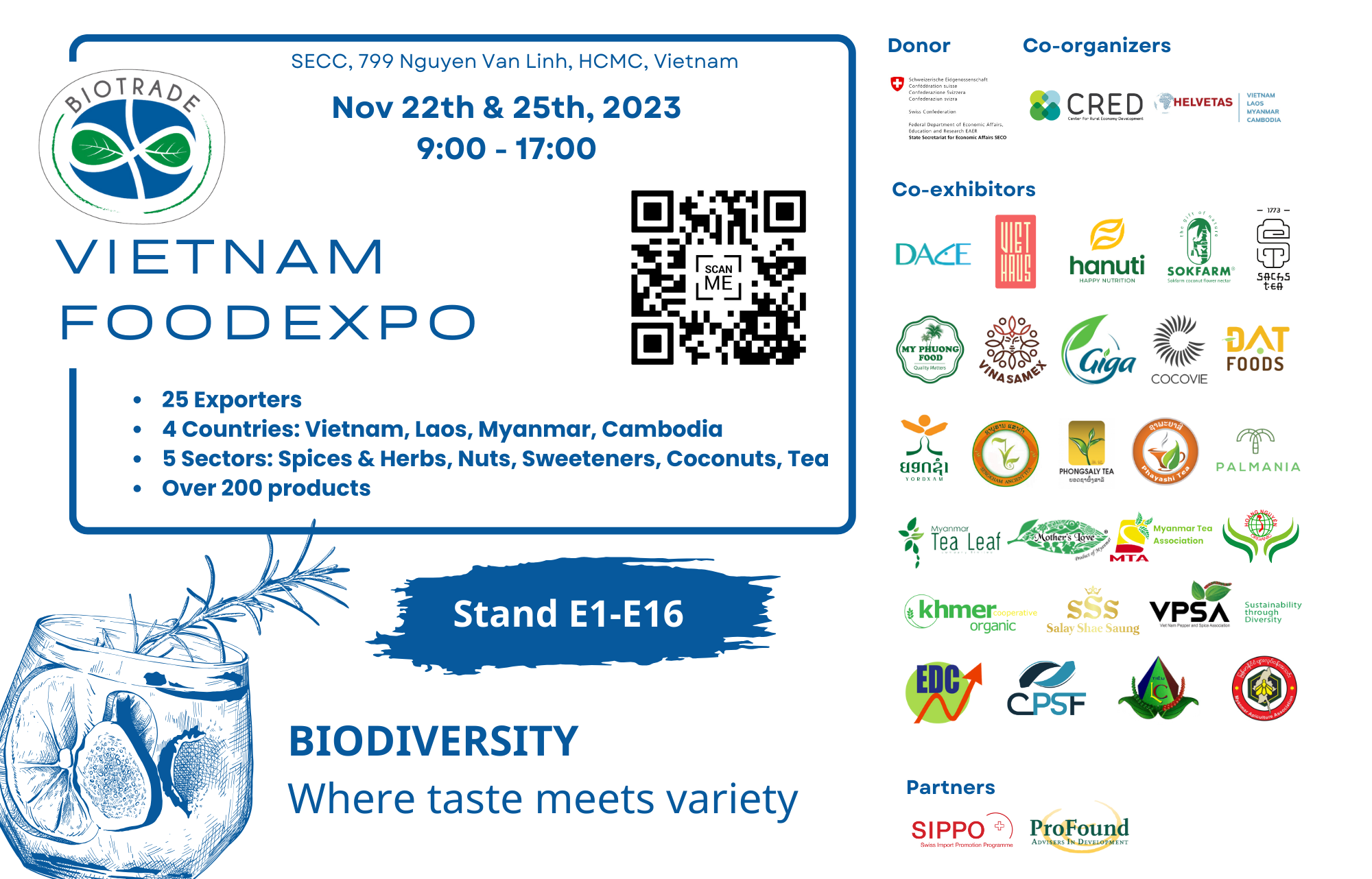Hà Nôi, 15 Dec 2023 – The Center for Rural Economy Development (CRED) collaborated with the United Nations Conference on Trade and Development (UNCTAD), Helvetas Organization, and the Department of International Cooperation – Ministry of Agriculture and Rural Development to organize the workshop ‘Applying Sustainability Standards in Achieving Biodiversity Goals’. The aim of the workshop is to raise awareness of the importance of Voluntary Sustainability Standards (VSS) in supporting the development of sustainable supply chains, facilitating international trade in biodiversity-based products, and promoting the adoption of these standards in Vietnam’s agricultural sector. One of the expected outcomes is to identify an appropriate legal framework to facilitate the widespread application of these standards in Vietnam. The workshop is conducted under the Global BioTrade Facilitation Programme with the financial support from the Swiss State Secretariat for Economic Affairs (SECO)
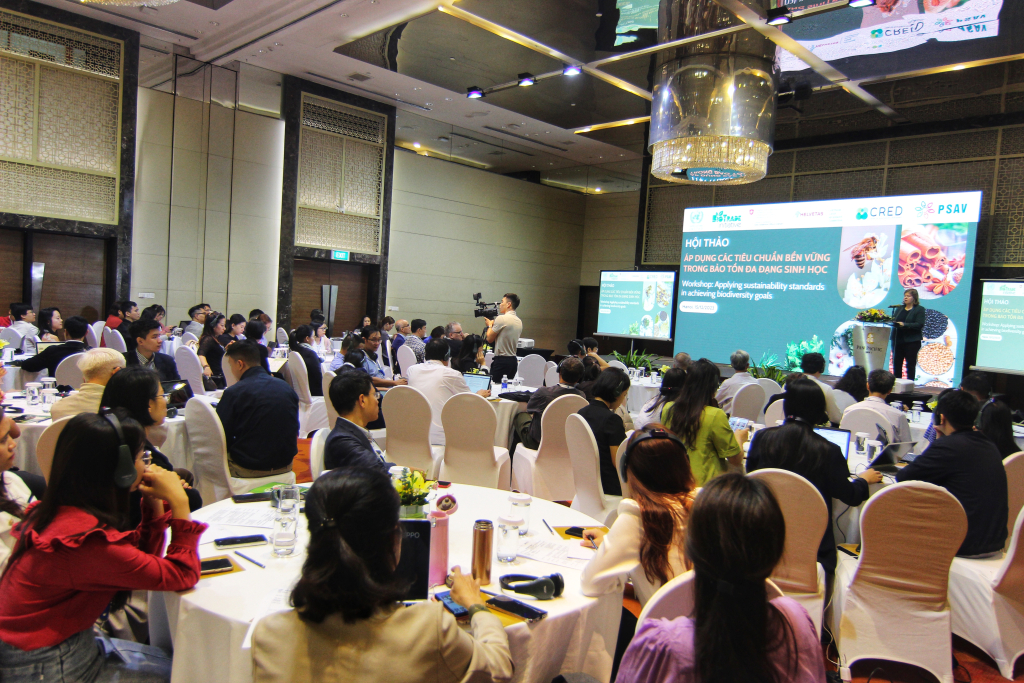
Workshop Panorama
Biodiversity loss constitutes a major global threat, as reported by the World Economic Forum (WEF). Unsustainable trade and consumption of products and services derived from biodiversity represent a contributing factor to this decline of diversity.
VSS are norms and standards used to ensure that products are harvested, produced, processed, or transported in accordance with specific sustainability metrics. These metrics include environmental impact, basic human rights, labour standards, and gender equality. Currently, there are over 500 VSS that apply to key exports of many countries, such as coffee, tea, bananas, cocoa, palm oil, timber, cotton, and organic agri-foods.
The 2030 Agenda for Sustainable Development identifies international trade as a means of achieving inclusive economic growth and reducing poverty. Voluntary Sustainability Standards (VSS) are increasingly being included in trade agreements to promote sustainable development and good governance. VSS can be an effective tool to encourage governments and companies to adopt practices that align with environmental, social, and economic objectives.
The workshop was attended by experts from Vietnam National University of Agriculture, Vietnam Institute of Technology for Application and Development Agriculture, Institute of Forest Ecology and Environment, Department of Agriculture and Rural Development of Tra Vinh province, Forest Protection Department of Lao Cai and Yen Bai provinces, European – American Market Department of Ministry of Industry and Trade, Control Union Vietnam, Eurofin Sac Ky Hai Dang, Vietnam Certification Centre, national and international organisation promoting biodiversity such as the Swiss State Secretariat for Economic Affairs SECO, United Nations Development Programme (UNDP), United Nations Industrial Development Organization (UNIDO), Union for Ethical BioTrade (UEBT), The Deutsche Gesellschaft für Internationale Zusammenarbeit (GIZ), Helvetas, Prefered by Nature, Center for Nature Conservation and Development (CCD), … together with representatives of the Vietnam Pepper and Spice Association, the Vietnam Coconut Association, and nearly 40 companies that practice conservation/restoration of biodiversity in farming, production and business, including many companies that have obtained certification according to international standards such as Organic, UEBT of the Ethical Biological Trade Alliance, Fair for Life… and export products to high-end markets in Europe, America and Japan.
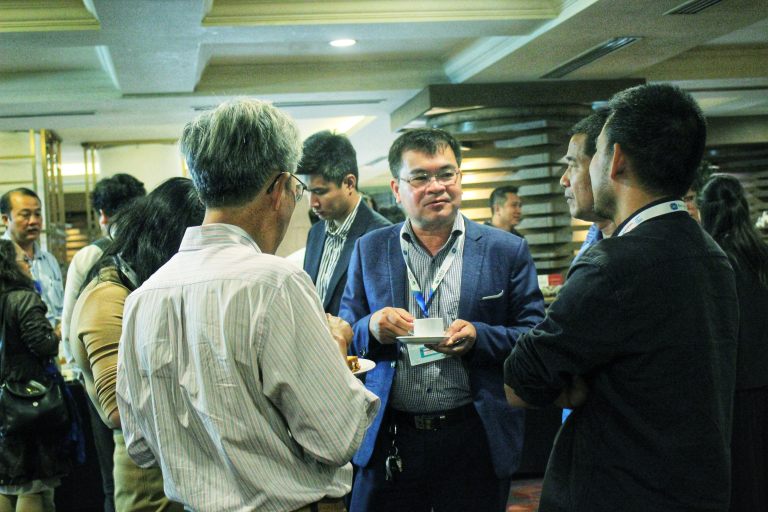
Networking in tea-break time
The presentations and reports at the workshop covered good practice examples for sustainable agriculture (covering inter alia the coconut, rice and cinnamon sector), provided updates on regulations and shared knowledge on international standards as effective tools for the conservation and sustainable use of biodiversity and for supporting livelihoods. The ensuing discussion addressed challenges and opportunities for the application of VSS standards and led to a set of recommendations and proposed solutions to facilitate the strengthening of public-private partnerships to promote the integration of sustainability standards in supply chains and the development of national legal frameworks that allow the use of VSS in the certification process.
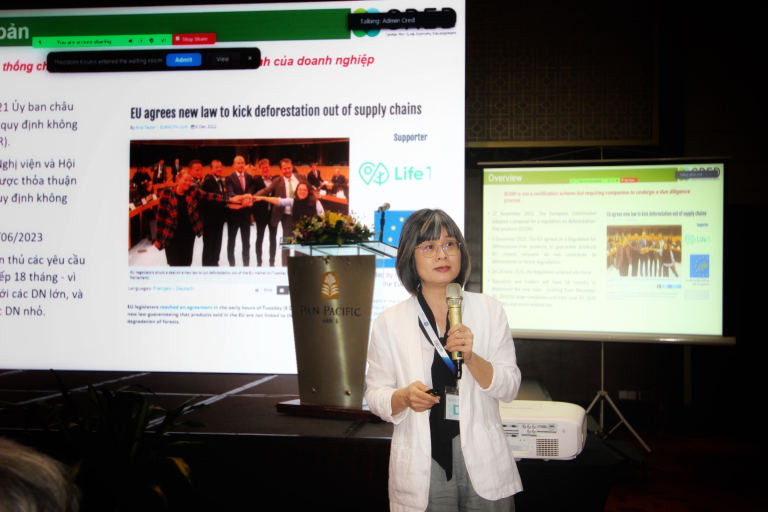
Ms. Nguyen Lam Giang – Director of CRED – presents about EUDR
Drawing on UNCTAD’s recent publication “Voluntary Sustainability Standards and BioTrade: Is there a connection?”, the workshop also offered an opportunity to develop an understanding of VSS and Biotrade Principles and Criteria as complementary tools that can be mutually supportive for advancing sustainable trade of biodiversity-based products to achieve objectives like biodiversity conservation and protection. Both tools can provide diversification opportunities, support the transfer of knowledge and technology as well as empower consumers and incentivize practitioners to make informed, responsible and sustainable choices towards the achievement of the Sustainable Development Goals (SDGs).
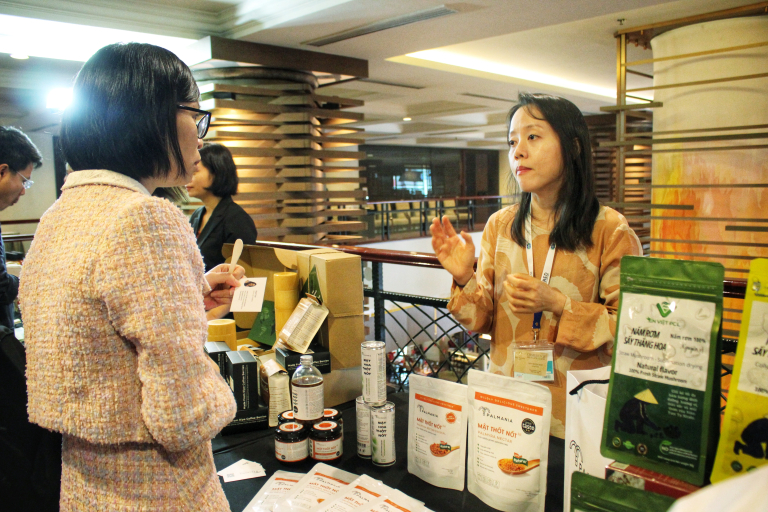
Product display of Biotrade’s business in Workshop
In opening speech, Ms. Sibylle Bachmann – Deputy Head of Swiss Cooperation Office said “ Switzerland has been a strong supporter of Voluntary Sustainability Standards (VSS) for many years. On the one hand, the VSS seek to assure that international trade and production processes meet certain economic, social and environmental criteria. On the other hand, by adopting these standards, companies aim to improve competitiveness and access to foreign markets and, in so doing, to contribute to the reduction of poverty and the creation of jobs. This is in line with the objective of the Swiss cooperation to support Vietnam in achieving market-based, sustainable growth”
The concept of Biotrade was first coined by UNCTAD in 1996. Since then it has been introduced and developed in Vietnam since the 2010s and has become the core transaction of the ecosystem where Vietnamese exporters can develop sustainable supply chains and reach potential markets through efficient trade promotion and value chain services.
For more information on the workshop including documents and presentations please access the Link
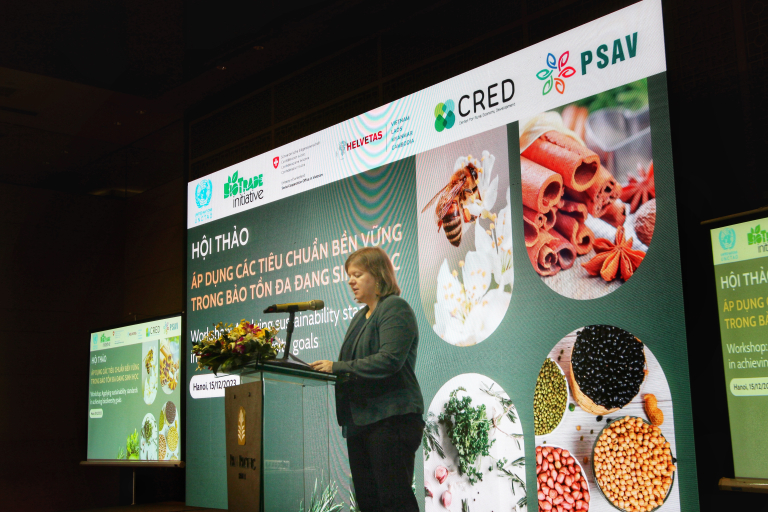
Ms. Sibylle Bachmann – Deputy Head of Swiss Cooperation Office in opening speech
